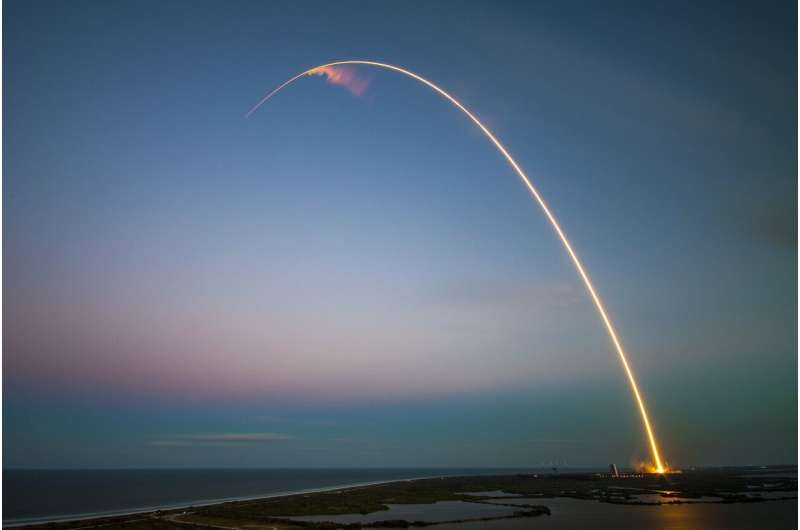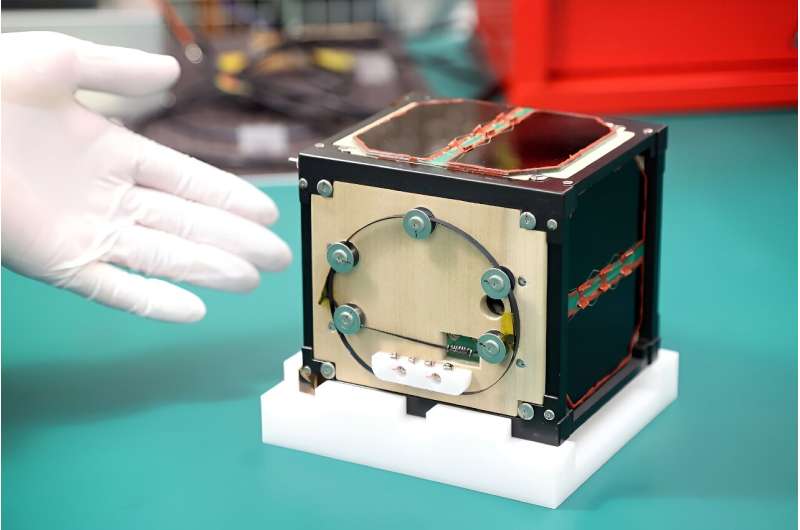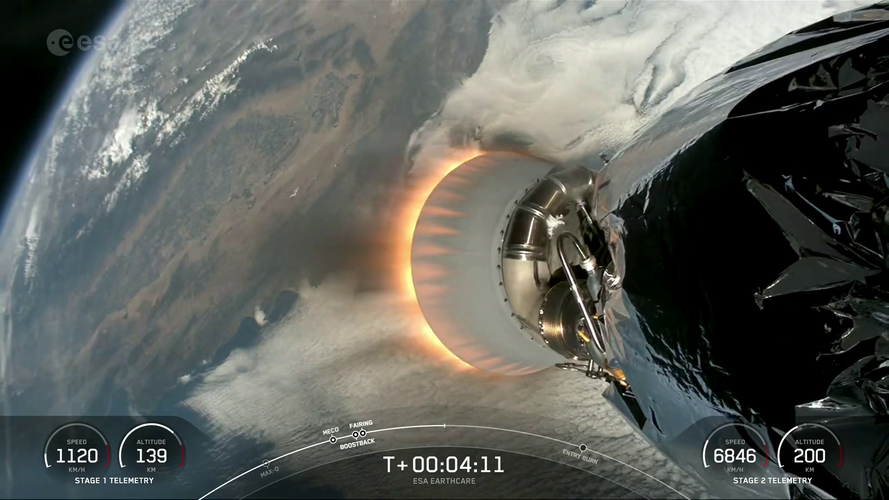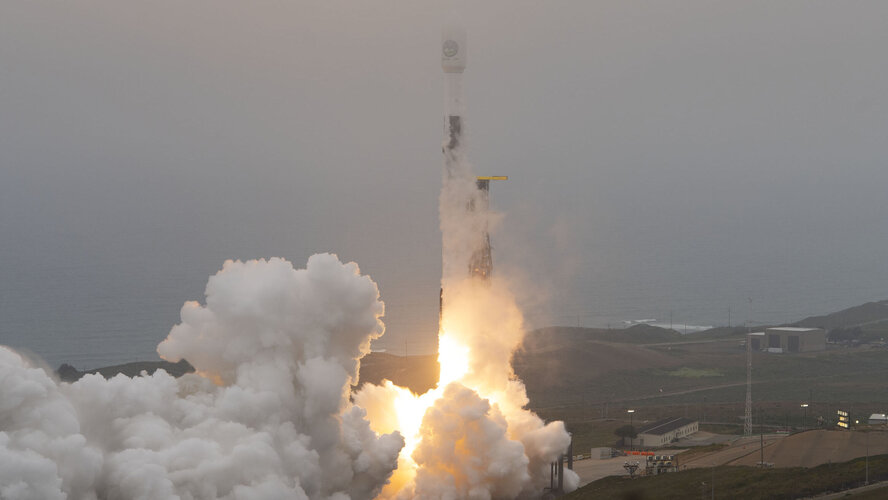
Copernical Team
Advanced satcom technologies revolutionize aviation and marine industries
 The aviation and marine industries are currently undergoing a significant transformation, thanks to advancements in satellite and communication technologies. Companies such as Intelsat, SES, MDA Space, Hughes Network Systems, Orbit Communications Systems, Collins Aerospace, and Gogo Business Aviation are pioneering these innovations, enhancing connectivity and operational capabilities. These dev
The aviation and marine industries are currently undergoing a significant transformation, thanks to advancements in satellite and communication technologies. Companies such as Intelsat, SES, MDA Space, Hughes Network Systems, Orbit Communications Systems, Collins Aerospace, and Gogo Business Aviation are pioneering these innovations, enhancing connectivity and operational capabilities. These dev Starless and forever alone: more 'rogue' planets discovered
 The Euclid space telescope has discovered seven more rogue planets, shining a light on the dark and lonely worlds floating freely through the universe untethered to any star.
Without being bound to a star, as the Earth is to the Sun, there are no days or years on these planets, which languish in perpetual night.
Yet scientists believe there is a chance they could be able to host life -
The Euclid space telescope has discovered seven more rogue planets, shining a light on the dark and lonely worlds floating freely through the universe untethered to any star.
Without being bound to a star, as the Earth is to the Sun, there are no days or years on these planets, which languish in perpetual night.
Yet scientists believe there is a chance they could be able to host life - Ongoing Venus Volcanic Activity Discovered With NASA's Magellan Data
 An analysis of data from Magellan's radar finds two volcanoes erupted in the early 1990s. This adds to the 2023 discovery of a different active volcano in Magellan data.
Direct geological evidence of recent volcanic activity on Venus has been observed for a second time. Scientists in Italy analyzed archival data from NASA's Magellan mission to reveal surface changes indicating the formatio
An analysis of data from Magellan's radar finds two volcanoes erupted in the early 1990s. This adds to the 2023 discovery of a different active volcano in Magellan data.
Direct geological evidence of recent volcanic activity on Venus has been observed for a second time. Scientists in Italy analyzed archival data from NASA's Magellan mission to reveal surface changes indicating the formatio HI-13 accelerator enhanced capability uncovers clues from supernovae in lunar dust
 Researchers at the China Institute of Atomic Energy (CIAE) have significantly enhanced the method of detecting iron-60 (60Fe), a rare isotope found in lunar samples, using the HI-13 tandem accelerator. This achievement paves the way for detecting 60Fe in lunar samples for a deeper understanding of cosmic events like supernovae that occurred millions of years ago.
The study, led by Bing Guo
Researchers at the China Institute of Atomic Energy (CIAE) have significantly enhanced the method of detecting iron-60 (60Fe), a rare isotope found in lunar samples, using the HI-13 tandem accelerator. This achievement paves the way for detecting 60Fe in lunar samples for a deeper understanding of cosmic events like supernovae that occurred millions of years ago.
The study, led by Bing Guo Cargo Ship Departs, Two Rockets Near Launch During Busy Day on Station
 A cargo ship departed the International Space Station on Tuesday leaving four spacecraft parked at the orbital lab. Meanwhile, as the Expedition 71 crew keeps up its advanced microgravity research two more spaceships are counting down to their missions to the orbital outpost in less than a week.
A trash-loaded Progress 86 cargo craft undocked from the space station's Poisk module at 4:39 a
A cargo ship departed the International Space Station on Tuesday leaving four spacecraft parked at the orbital lab. Meanwhile, as the Expedition 71 crew keeps up its advanced microgravity research two more spaceships are counting down to their missions to the orbital outpost in less than a week.
A trash-loaded Progress 86 cargo craft undocked from the space station's Poisk module at 4:39 a European-Japanese climate research satellite launched from California aboard SpaceX rocket

A European-Japanese climate research satellite designed to study Earth's temperature balance was launched into orbit from California on Tuesday.
The EarthCARE satellite lifted off from coastal Vandenberg Space Force Base atop a SpaceX Falcon 9 rocket at 3:20 p.m. The satellite was successfully deployed about 10 minutes later, SpaceX said on the launch webcast.
The name EarthCARE is short for Earth Cloud Aerosol and Radiation Explorer.
The satellite is equipped with four instruments to study the role of clouds and aerosols—particles suspended in the atmosphere—in reflecting solar radiation back into space and trapping infrared radiation emitted from Earth's surface.
The research is a cooperative project between the European Space Agency and the Japan Aerospace Exploration Agency.
After stage separation, the reusable Falcon 9 first stage booster landed back at Vandenberg, completing its seventh flight.
© 2024 The Associated Press. All rights reserved. This material may not be published, broadcast, rewritten or redistributed without permission.
World's first wooden satellite built by Japan researchers

The world's first wooden satellite has been built by Japanese researchers who said their tiny cuboid craft will be blasted off on a SpaceX rocket in September.
Each side of the experimental satellite developed by scientists at Kyoto University and logging company Sumitomo Forestry measures just 10 centimeters (four inches).
The creators expect the wooden material will burn up completely when the device re-enters the atmosphere—potentially providing a way to avoid the generation of metal particles when a retired satellite returns to Earth.
These metal particles could have a negative impact on the environment and telecommunications, the developers said as they announced the satellite's completion on Tuesday.
"Satellites that are not made of metal should become mainstream," Takao Doi, an astronaut and special professor at Kyoto University, told a press conference.
EarthCARE is launched
 Video:
00:11:00
Video:
00:11:00
ESA’s EarthCARE satellite lifted off on a SpaceX Falcon 9 rocket from the Vandenberg Space Force Base in California, US, on 29 May at 00:20 CEST (28 May, 15:20 local time).
Developed as a cooperation between ESA and the Japan Aerospace Exploration Agency (JAXA), the Earth Cloud Aerosol and Radiation Explorer satellite carries a set of four instruments to make a range of different measurements that together will shed new light on the role that clouds and aerosols play in regulating Earth’s climate.
Taking EarthCARE into orbit
 Video:
00:02:36
Video:
00:02:36
ESA’s EarthCARE satellite lifted off on a SpaceX Falcon 9 rocket from the Vandenberg Space Force Base in California, US, on 29 May at 00:20 CEST (28 May, 15:20 local time).
Developed as a cooperation between ESA and the Japan Aerospace Exploration Agency (JAXA), the Earth Cloud Aerosol and Radiation Explorer satellite carries a set of four instruments to make a range of different measurements that together will shed new light on the role that clouds and aerosols play in regulating Earth’s climate.
Replay: EarthCARE launch coverage
 Video:
02:15:00
Video:
02:15:00
Watch the replay of the EarthCARE launch coverage. The video includes streaming of the event at ESA’s European Space Operations Centre in Germany and footage of liftoff from the Vandenberg Space Force Base in California, US.
EarthCARE was lofted into orbit on a SpaceX Falcon 9 rocket on 29 May at 00:20 CEST (28 May, 15:20 local time).
Developed as a cooperation between ESA and the Japan Aerospace Exploration Agency (JAXA), the Earth Cloud Aerosol and Radiation Explorer satellite carries a set of four instruments to make a range of different measurements that together will shed new light
